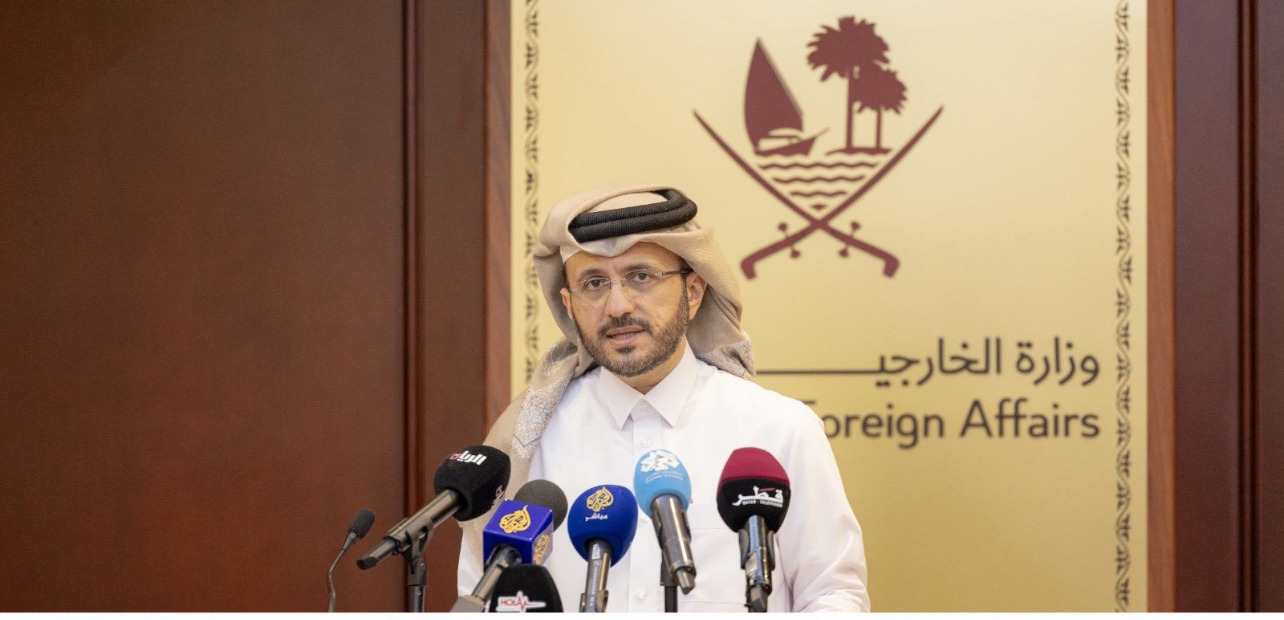Qatar’s foreign ministry called for action following the ICC’s bid for arrest warrants against Israeli leaders, saying the move confirmed that violations of international law were taking place in Gaza.
Qatar’s foreign ministry has responded to the latest bid by the International Criminal Court (ICC) to seek arrest warrants against Israeli Prime Minister Benjamin Netanyahu and Defence Minister Yoav Galant over the war on Gaza, saying that the move confirms that violence against civilians “cannot be tolerated”.
Spokesperson for the Ministry of Foreign Affairs Majid Al Ansari stressed that while Qatar was not a party to the ICC, it was evident that there were breaches of international law by Israel.
His comments came as part of a media briefing on Tuesday, during which he said that Qatar does not “anticipate what the International Criminal Court will decide regarding the requests of the Court’s Prosecutor, and we are not a party to the International Criminal Court system”.
“There are clear violations of international law in the West Bank and we call for these violations to stop,” he said.
“The call by Israeli officials to attack aid convoys to Gaza is moving from individual to institutional practices and represents a case of collective punishment that cannot be accepted,” Al Ansari said, stressing that “the attack on aid convoys to Gaza calls for action by the international community to provide protection for them”.
He also said that the closure of the Rafah crossing further fuels the humanitarian catastrophe in the Gaza Strip, and “Israel’s escalation in Rafah is unacceptable and directly contributes to expanding the circle of violence, targeting civilians and prolonging the crisis.”
On Monday, ICC prosecutor Karim Khan said he was seeking warrants against the top Israeli officials over “starvation”, “wilful killing”, and “extermination and/or murder” in relation to Israel’s ongoing war in the besieged enclave, which has killed over 34,500 people since 7 October – most of whom women and children.
Since last week, around 300,000 people were forced to flee the densely populated Rafah with nowhere safe to go, the United Nations’ agency for Palestinian Refugees (UNRWA) said on Sunday.
The entry of aid and evacuations have been disrupted due to the invasion of the Rafah Crossing.
Qatar has been playing a crucial mediating role between Israel and Hamas since the beginning of the war in Gaza in hopes of reaching a ceasefire and captives’ release deal. Last year, Qatar and Egypt’s mediation led to a week-long truce in Gaza that resulted in the release of 109 captives.
However, the talks have since stalled, particularly since the beginning of the Rafah invasion.
Al Ansari stressed that Qatar’s mediator role continues.
“We will continue to mediate in indirect negotiations between Israel and the Palestinians in Gaza and encourage the international community to hold accountable those responsible for targeting civilians,” he said, warning that “the ceasefire talks in Gaza and the release of hostages are about to reach a dead end.”
Israel’s relentless genocidal war in Gaza entered its eighth month, killing more than 35,000 people in the besieged enclave while creating a dire humanitarian crisis.
At least 1.7 million people are internally displaced in Gaza and 1.1 million people are projected to face catastrophic levels of food insecurity, according to the UN.
Israel’s attacks on hospitals and prevention of the entry of basic resources also forced more than half of Gaza’s health facilities to go out of service. Currently, there are 12 partially functioning hospitals in Gaza out of an initial 36.
The health sector is on the brink of total collapse with the closure of the Rafah Crossing.







